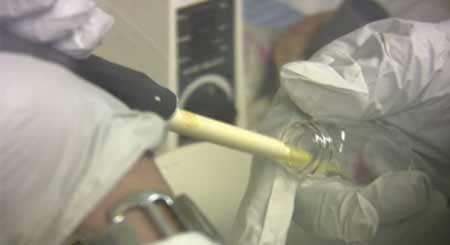Two new ingredients in the form of gold and green tea have shown promise in prostate cancer treatment, according to a fresh trial by scientists at University of Missouri. One of the promising aspects of the analysis is that the new found chemicals seemingly carried fewer side effects than severe chemotherapy drugs.
Basically, the team made use of gold nanoparticles and chemicals derived from tea leaves for treating prostate cancer. These substances could be infused with the body in considerably low doses, which do not disturb healthy regions of the body. Carried in the journal, Proceedings of the National Academy of Science, the findings put forth another potential advantage of gold nanoparticles in the medical realm.
“In our study, we found that a special compound in tea was attracted to tumor cells in the prostate. When we combined the tea compound with radioactive gold nanoparticles, the tea compound helped ‘deliver’ the nanoparticles to the site of the tumors and the nanoparticles destroyed the tumor cells very efficiently,†cited Kattesh Katti, curators’ professor of radiology and physics in the School of Medicine and the College of Arts and Science and senior research scientist at the MU Research Reactor.
It’s essentially the gold nanoparticles that seemed to shrink prostate tumors, apparently due to their inherent radioactive properties. Importantly, the size of the particles needs to be optimum for the treatment to progress the right way. Likewise, the compound found in tea leaves kept the particles within the tumor site, supposedly resulting in favorable outcomes. The effect was a substantial drop in tumor volume after just about 28 days of treatment.
All the aforementioned effects were demonstrated in a set of mice. Further studies involving dogs are underway, followed by final tests in humans.

